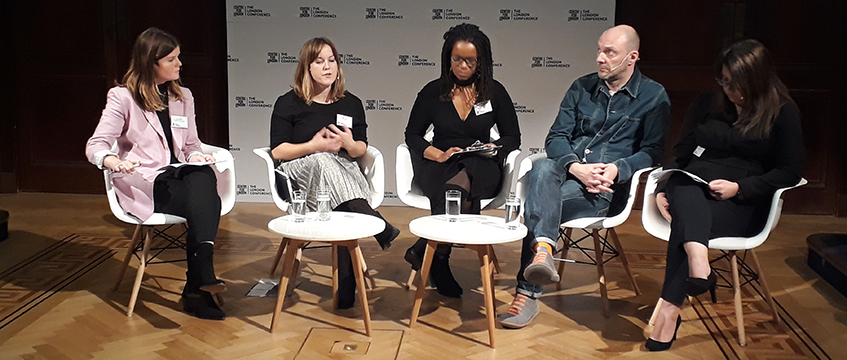The creative director at regeneration specialist U+I has called on his industry to put even greater focus on making buildings and spaces that help to address loneliness, branding any developer that ignored social inclusion “a fool”.
“All of life happens in and around property,” said Martyn Evans at the Centre for London think-tank’s London Conference. “I work in a sector of our industry that is building large, new places along dead, empty, mostly ex-industrial sites – so we are actually creating whole new communities with infrastructure from scratch. It’s an absolutely gigantic responsibility to make those places good for the people who are going to live and work there and visit.”
Evans continued: “If you’re a property developer in my business and you don’t fundamentally understand people’s lives and how to create the right environment for thriving, sustainable communities, with people talking to each other and understanding each other, then you’re a fool.”
Read more about these issues on EG’s Mental Health Hub >>
The Greater London Authority’s Survey of Londoners, published earlier this year, found that 8% of people in the capital “often or always” feel lonely, with more than a quarter describing themselves as socially isolated. Loneliness was particularly prevalent among young Londoners, the survey found.
Evans spoke on a panel discussing the role of the built environment and social infrastructure in building inclusive communities. As well as looking at the private sector, the discussion drew on the role local government can play, with Victoria Lawson, executive director for environment, culture and customer services for the London Borough of Hounslow, explaining that council-maintained parks, leisure space and libraries can be “strong enablers to tackle this challenge”.
Iona Lawrence, a consultant who helped to establish the Jo Cox Foundation in memory of the murdered MP who had worked to tackle loneliness, urged the property industry to call on a broader variety of views when designing places.
“If you look at the [Survey of Londoners] statistics, 8% of Londoners think they’re lonely – but those people are more likely to be young, single, LGBT, black and with poor English language skills,” Lawrence said.
“If we look at the way in which spaces are designed and the community participation processes in that designing process, so often you don’t have those people around the table… We do need to think about who is experiencing loneliness and then start asking them questions… about what a connected and more inclusive space would look like.”
Fostering connections
Bethan Harris, director at Collectively, outlined the non-profit organisation’s work with developer Leadlease to establish a “Loneliness Lab” that carried out research in the London borough of Southwark into how buildings and places can foster connections.
In apartment blocks, she said, security measures such as only allowing residents access to their own floor can prevent friendships forming, while in the modern workplace, hot desking in an open-plan office has limited connections with co-workers (“If you’re not sat by the same person every day, you’re not going to notice if they’re not in.”)
“The way we are building our cities is actually making us more lonely,” Harris said. “We can’t keep asking people to be better human beings and go and talk to each other – we have to think about how we’re designing our cities.”
Ultimately, Evans said, property developers and owners alike will find that what is good for customers and communities is good for business, and will develop their assets accordingly.
He pointed to pensions funds and other institutional owners of homes in the private rented sector, which he said have had to step up effort to ensure customers are happy and want to continue to rent a home from them.
Evans said: “If you look in the jobs section of the Estates Gazette every week, you’ll see lots and lots of jobs that have got odd titles, like ‘community understanding managers’, being hired by pension funds who realise that they haven’t got anybody that understands people.”
To send feedback, e-mail tim.burke@egi.co.uk or tweet @_tim_burke or @estatesgazette











